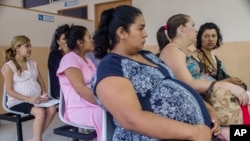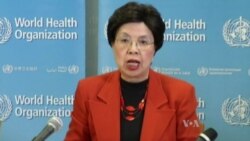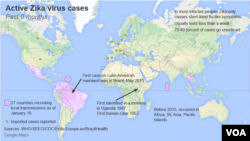The World Health Organization has declared microcephaly and other neurological disorders possibly linked to the Zika virus to be a global public health emergency. A special expert meeting convened in Geneva Monday to discuss the threats posed by the explosive spread of the Zika virus in Latin America.
The group of experts who met at the World Health Organization agree the Zika virus is not a clinically serious infection and that the virus alone would not constitute a public health emergency.
However, the experts conclude that the possible association of the virus in Latin America with the explosive spread of microcephaly, which causes abnormally small brains in newborns, and other neurological disorders, constitutes an extraordinary event and a public health threat to other parts of the world.
Therefore, WHO Director General, Margaret Chan says the expert committee has decided a coordinated international response is needed to minimize the threat in affected countries and to reduce the risk of its international spread.
“I am now declaring that the recent cluster of microcephaly and other neurological abnormalities reported in Latin America following a similar cluster [in] French Polynesia in 2014, constitutes a public health emergency of international concern,” she said.
Statements from WHO news conference on Zika, Feb. 1, 2016:
As a precautionary measure, the committee - composed of experts from Brazil, the United States, El Salvador, and France - recommends improved international surveillance to detect infections, as well as congenital and neurological malformations.
The committee also urges intensified research of new clusters of microcephaly and neurological disorders and to determine whether there is a causative link to the Zika virus and other factors.
The WHO predicts the virus, which may be linked to neurological disorders in babies, could infect as many as 4 million people in the Americas this year.
No firm link has been established between the Zika virus and microcephaly, a neurological disorder in which babies are born with abnormally small heads. But it is hard to ignore a possible connection between the virus and this brain disorder, given recent events in Brazil.
Nearly 4,000 suspected cases of microcephaly have been reported in the country since October, compared with 150 similar cases in 2014.
WHO spokesman Gregory Hartl told VOA experts are not ruling anything out. But, he said, the surge in the number of microephaly cases and the Zika virus may just be coincidental in terms of time and place.
"One of the curiosities is why we have so many neurological cases in, say, the northeast of Brazil, but we have not had it in other places," he said. "So, we really need to understand what is existing that causes these microcephaly cases, for example, in children."
Zika gets its name from a forest in Uganda where the virus was first identified in 1947. The virus has spread worldwide, transmitted by Aedes mosquitoes, which also causes dengue and chikungunya disease.
Hartl dismissed fears that the Zika virus could pose a threat similar to that of Ebola, which caused more than 11,000 deaths in West Africa. He noted Ebola is transmitted person to person via infected bodily fluids and kills about 50 percent of its victims.
"Zika has never killed a person and it is transmitted by the mosquito," he said. "So, we know that there are those two fundamental differences at least. Let us say that Zika on its own would not be the consideration of an emergency committee. What is the concern to the international community is the possible link with neurological disorders."
In the absence of a vaccine, Hartl said governments must stop the disease at its source by removing stagnant water where mosquitoes breed and fumigating houses to kill the mosquito.
He said pregnant women, in particular, should protect themselves by sleeping under mosquito nets, using mosquito repellents, and wearing long-sleeved shirts and pants.








